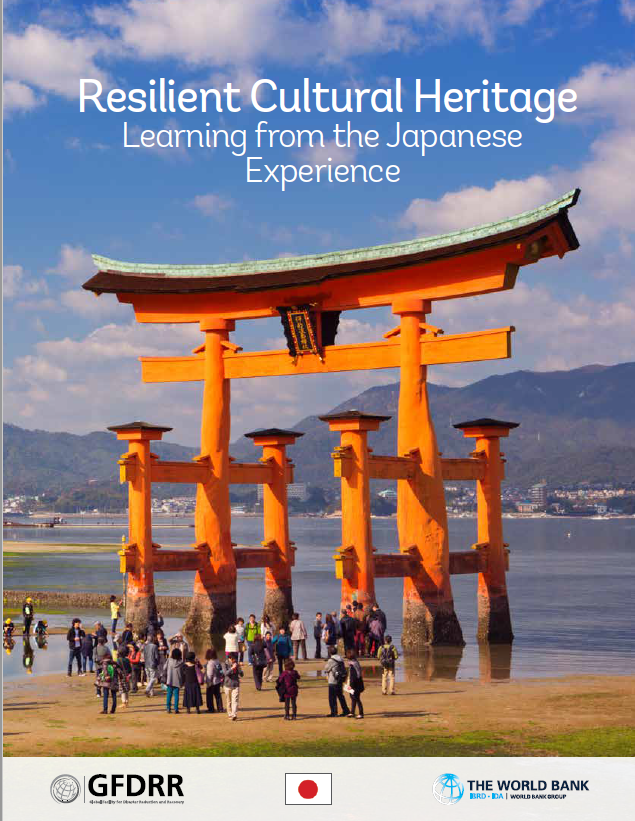Japan’s cultural heritage (CH) is among the richest in the world, but the country is faced with some of the most difficult challenges in its exposure to hazards. With earthquakes, volcanic eruptions, tsunamis, typhoons, floods, landslides, and fire, Japan is ranked second, behind the Philippines, for exposure to natural hazards, according to the INFORM Global Risk Index 2019. This has forced the country to develop a culture of continuous improvement in the face of hazard events—a quality that is particularly notable in its management of its CH.
This knowledge product—Resilient Cultural Heritage: Learning from the Japanese Experience—reflects good practices and lessons learned from Japan to support international practitioners in the fields of disaster risk management (DRM), CH, and public policy, who are seeking to enhance the disaster resilience of CH and communities in their countries.

